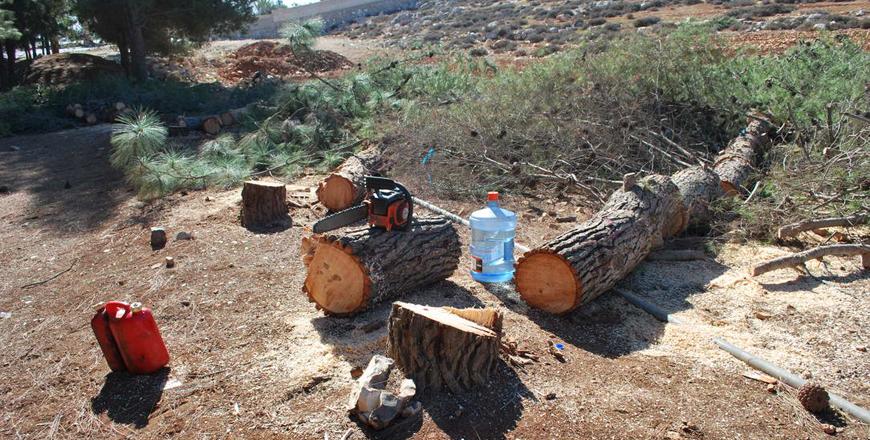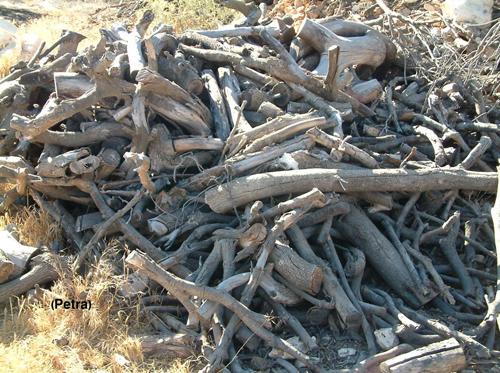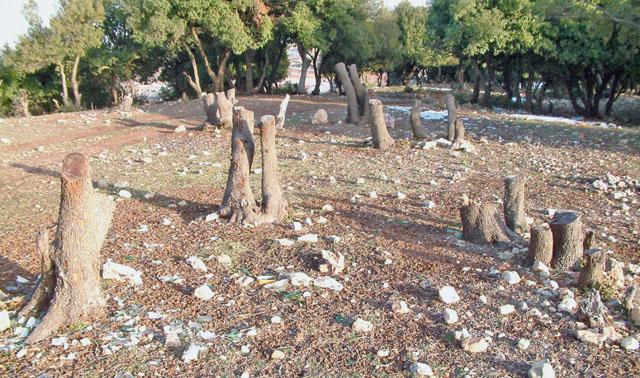You are here
Edict says forest violations punishable in Islam
By Hana Namrouqa - Jun 10,2015 - Last updated at Jun 10,2015

1,399 violations in the country’s forests were registered in 2014, with 800 cases still in court (File photo)
AMMAN — The iftaa department, the state body responsible for issuing religious edicts, has deemed abuse of the Kingdom’s forests as violations against public property, and thus punishable in Islam.
The department said trees are one of the reasons behind mankind’s survival on earth and those who cut them down in pursuit of individual financial gain shall be punished, citing a saying of Prophet Mohammad that those who cut down shade trees will be “thrown on their heads in hell”.
“Measures must be put in place to protect and preserve the blessing of trees,” the iftaa department added.
Agriculture Ministry Spokesperson Nimer Haddadin said the ministry asked the iftaa department to issue a religious edict on the issue of illegal logging.
“The fatwa (religious edict) seeks to put an end to the violations against our forests. Protecting forests from abuse in Jordan is a shared responsibility among the Agriculture Ministry, civil and public institutions, and individuals,” Haddadin told The Jordan Times.
He noted that a media campaign will be launched soon to raise public awareness on the need to preserve forest trees and the role of individuals in reporting suspicious acts threatening the Kingdom’s green cover.
According to Eid Zu’bi, director of the Agriculture Ministry’s forestry department, all threats against the country’s forests are manmade.
“Almost all of the violations... are deliberate, including arson and illegal logging,” Zu’bi told The Jordan Times on Wednesday.
Forests in Jordan constitute less than 1 per cent of the country’s total area of 97,000 square kilometres.
The Kingdom is among the poorest countries worldwide in terms of forest cover, with the internationally accepted average of land covered by forests standing at 15 per cent of the total area, according to the ministry, whose figures indicate that a total of 1,399 violations in the country’s forests were registered in 2014, and 800 cases are still in court.
Related Articles
AMMAN — The Ministry of Agriculture will collaborate with tribal leaders in areas with dense green cover to stop violations against forests,
AMMAN — A 24/7 hotline newly established by the Ministry of Agriculture has started receiving phone calls from individuals providing informa
The Agriculture Ministry has doubled the number of its forest patrols to prevent illegal logging, which increases with the onset of winter, a government official said on Sunday.


















